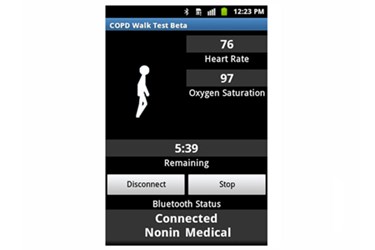Researchers Develop App To Measure 'Sixth Vital Sign'
By Joel Lindsey

Researchers at the University of Illinois at Urbana-Champaign and the University of Illinois at Chicago have developed a smartphone app called GaitTrack that tracks a user’s gait in order to monitor and record vital health data.
“Fitness apps and devices are tuned for healthy people,” Bruce Schatz, head of medical information science, professor of computer sciences, and lead researcher on the project, said in a news release published recently by the University of Illinois. “They cannot accurately measure patients with chronic disease, who are the biggest medical market. A pedometer is not a medical device. But a cheap phone with GaitTrack software is.”
Researchers involved with the project, like Schatz, have stressed that GaitTrack is a software development distinct from other fitness apps, since it uses eight motion parameters to gather, record, and analyze critical information about a person’s gait — the overall pattern of a person’s physical movements while walking.
Schatz classifies gait as the “sixth vital sign,” placing it in the same cluster of vital health measurements as temperature, blood pressure, heart rate, respiratory rate, and blood oxygen level. Measurements and analyses of gait can provide important information about a patient’s cardiopulmonary, muscular, and neurological health, according to the news release.
The app is designed to run constantly in the background of a user’s smartphone, where it could periodically measure, record, and analyze key data related to gait. It would then alert the patient or the patient’s doctor if the data ever indicated a dangerous change.
Because gait can be an especially valuable measurement for those with heart and lung diseases, GaitTrack developers claim that the app could be an important tool for those with congestive heart failure, chronic obstructive pulmonary disease (COPD), and asthma.
In an early study, the results of which have recently been detailed in an article published in the journal Telemedicine and e-Health, Schatz and his team used the app to administer “six-minute walk tests” to 30 patients with chronic lung disease. At the end of the tests, researchers reported that GaitTrack provided more accurate data and analyses than traditional medical accelerometers — at a much lower cost.
“Population health measurement is the key to making health care viable,” said Schatz. “If you could just measure what people were doing all the time, then you could get enough information to make rational decisions.”
With the initial test on 30 patients now complete, researchers have begun using GaitTrack in larger clinical trials. Schatz hopes to make the app publicly available sometime later this year.
Image Credit: Bruce Schatz
